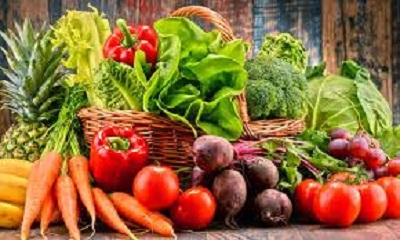Eating fruits, vegetables and whole grains slashes people’s risk of depression by more than 10 percent, new research suggests.
Following the so-called ‘DASH diet’ reduces people’s likelihood of developing the mental-health disorder by up to 11 percent, according to Daily Mail.
Those who eat a typical Western diet, which is rich in processed foods and sugar, are more at risk of suffering depression, the research adds.
Researchers add further studies are required to determine the association between diet and mental health, but add simple lifestyle changes may be preferred over medication to control such conditions.
Previous research suggests eating lots of fresh produce benefits people’s mental health by improving their moods, giving them more energy and helping them to think clearly.
Around seven percent of adults suffer from depression every year.
What is the DASH diet?
The Diet Intervention for Neurodegenerative Delay (DASH) way of eating is rich in fruits, vegetables, nuts, lean meat, whole grains and fish.
It is low in processed foods, sugary drinks, salt and red meat.
As well as being linked to better mental health, DASH is also promoted to prevent and control hypertension.
Previous studies suggest DASH reduces blood pressure in just 14 days, as well as promoting weight loss.
How the research was carried out
Researchers analysed 964 people with an average age of 81 every 12 months for around six-and-a-half years.
The study’s participants were monitored for symptoms of depression, such as feeling hopeless about the future.
They also completed food questionnaires, which the researchers used to determine how strictly they adhered to diets such as the DASH, Mediterranean and traditional Western way of eating.
Study author Dr Laurel Cherian said: ‘Making a lifestyle change such as changing your diet is often preferred over taking medications, so we wanted to see if diet could be an effective way to reduce the risk of depression.’
This comes after research released last year suggested DASH lowers people’s blood pressure more than medication after just four weeks.
Cutting out salt and eating lots of fruit, vegetables and low-fat dairy, reduces people with high blood pressure’s results by an average of 21 mm Hg, the research adds.
Most medications typically reduce hypertension readings by between 10 and 15 mm Hg, but come with side effects including fatigue, dizziness and headache.
Study author Dr Lawrence Appel, said: ‘What we’re observing from the combined dietary intervention is a reduction in systolic blood pressure as high as, if not greater than, that achieved with prescription drugs.
‘It’s an important message to patients that they can get a lot of mileage out of adhering to a healthy and low-sodium diet.’
Around 32 percent of adults have high blood pressure, which puts them at risk of heart disease and stroke.
N.H.Kh

